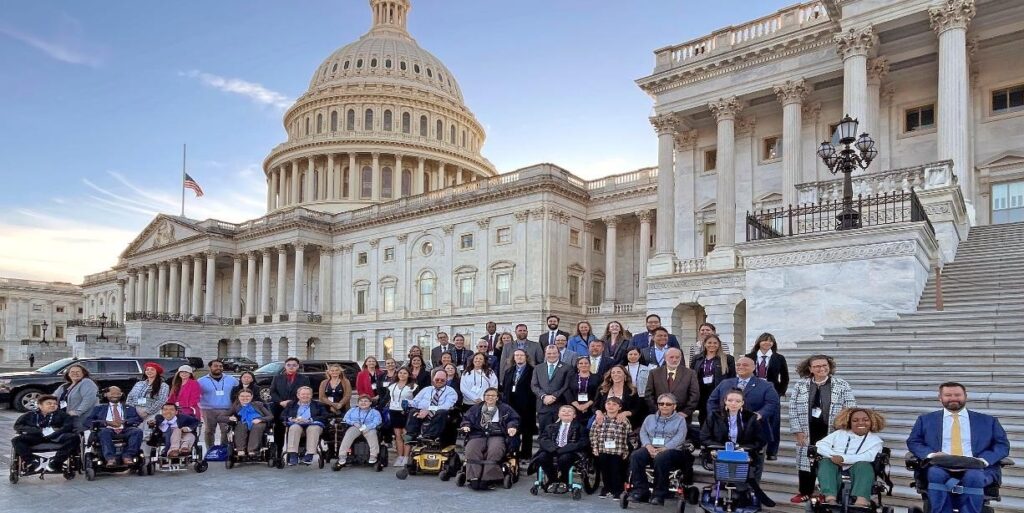
FDA Approves AveXis’ Zolgensma for Treatment of Spinal Muscular Atrophy in Pediatric Patients
By Jeanene Swanson | Friday, May 24, 2019
Today, the U.S. Food and Drug Administration (FDA) approved Zolgensma (onasemnogene abeparvovac-xioi), the first gene therapy for a neuromuscular disease. Zolgensma is a one-time intravenous (into the vein) infusion for the treatment of pediatric patients less than 2 years of age with spinal muscular atrophy (SMA) with bi-allelic mutations in the survival motor neuron 1 (SMN1) gene, including those who are presymptomatic at diagnosis. SMA is the leading genetic cause of infant death. Zolgensma is designed to target the genetic root cause of SMA by delivering the survival motor neuron gene (SMN), which is missing or mutated in SMA. Zolgensma will be made available in the United States and will be marketed by AveXis, a Novartis company.
Approval of the therapy marks another historic achievement for the SMA community. Now, in addition to Spinraza — the first SMA disease-modifying therapy, which was approved in December 2016 — patients will have access to another promising therapy.
For decades, MDA has funded research aimed at the discovery of genes causing neuromuscular disease and has supported work to develop therapies that address the root cause of disease. Zolgensma is only the second gene therapy approved by the FDA to treat any disease, placing the field of neuromuscular disease at the forefront of genetic medicine.
“Zolgensma is poised to be another life-altering therapy for the SMA community,” says MDA President and CEO Lynn O’Connor Vos. “It represents a breakthrough toward the promise of safe and effective gene therapies, and it may catalyze the development of other gene therapies to treat a range of rare neuromuscular diseases.”
Zolgensma may be the first of many gene therapies targeting the genetic root cause of disease, highlighting the importance of years of investment by MDA and others into gene identification and research unlocking the cause of disease. In addition, MDA has funded landmark research focused on developing and refining gene delivery tools and has supported the work to establish protocols for safe and effective gene therapy clinical trials. While this may be the first gene therapy for treating neuromuscular disease, the increasing pace of drug development holds immense promise for the future of the field. In the past decade alone, seven therapies for treating neuromuscular diseases have been approved by the FDA.
Zolgensma proves to be safe and effective in clinical trials
Positive results of the pivotal phase 1 START trial showed that treatment with Zolgensma was associated with an increased survival rate compared to the normal course of the disease and the achievement and maintenance of motor milestones that infants with SMA type 1 normally would not be expected to achieve. In the START trial, all 15 patients infused with Zolgensma — three with low dose (cohort 1), 12 with high dose (cohort 2) — were alive and event-free at 24 months, compared to 8% in a natural history study (a study following the natural course of disease in untreated infants). An “event” was defined as either death or at least 16 hours per day of required ventilation support for breathing for 14 consecutive days in the absence of acute reversible illness or surgery. At 24 months, 11 of the 12 high-dose patients could keep their heads erect for more than three seconds and sit without support for more than five seconds, 10 patients were able to sit without support for more than 10 seconds, nine patients could sit without support for more than 30 seconds, and two patients were able to stand and walk alone without assistance.
The trial also showed meaningful respiratory results. Of the 10 patients who were not using non-invasive ventilation (NIV) at the start of the trial, seven of them remained NIV-free after 24 months. More importantly, all patients, whether ventilated or not, survived respiratory hospitalizations without tracheostomy or permanent ventilation.
Since completion of the 24-month study period, 10 of the 12 patients in the high-dose cohort of START are continuing to be monitored in a long-term follow-up study. Patients observed in this study maintained strength and milestones achieved during the clinical trial, indicating the long-term durability of Zolgensma. All 10 patients, ranging in age from 3 to almost 5, were alive and event-free.
Zolgensma was also tested in a phase 3 trial in the U.S. called STR1VE, with interim data presented at the 2019 MDA Clinical & Scientific Conference and the 2019 Academy of Neurology Annual Meeting validating the START trial results. In this study, infants treated with Zolgensma showed prolonged survival, increases in motor function, and achievement of motor milestones beyond what would be expected for infants with SMA type 1. As of March 8, 2019, of the 20 patients who could have reached 10.5 months of age or discontinued the study prior to 10.5 months of age, 19 (95%) survived without permanent ventilation. Typically, only 50% of babies with SMA type 1 will survive to 10.5 months of age event-free without treatment. By the data cutoff, 13 of the 19 patients reached 14 months of age without permanent ventilation, one of the study’s primary efficacy endpoints. Regarding the other primary efficacy endpoint, it was found that 10 patients (47.6%) could sit without support for at least 30 seconds between 9.2 and 16.9 months of age, with one patient learning to crawl and one patient able to pull to a stand. Based on the natural history of the disease, patients who met the study entry criteria would not be expected to be able to sit without support, and only approximately 25% of these patients would be expected to survive beyond 14 months of age. In addition, 16 of the 19 patients had not required daily NIV use.
AveXis is currently testing Zolgensma in clinical trials for patients with SMA type 2 — a proof-of-principle phase 1 study — as well as in a phase 3 trial for presymptomatic newborns with two or three copies of SMN2 (who are anticipated to develop SMA types 1, 2, or 3). Interim data reported in May 2019 from the STRONG trial where Zolgensma is being evaluated in SMA type 2 patients using intrathecal (injection into the spinal canal) delivery showed rapid motor function gains and milestone achievements. Additionally, presymptomatic SMA patients treated with Zolgensma in the SPR1NT trial showed achievement of age-appropriate milestones in an interim data report.
Zolgensma was found to be well tolerated and safe in the more than 150 patients who have been treated to date. The most commonly observed adverse events were elevated liver enzymes and vomiting. Transient decreases in platelet counts (platelets are blood cells that play an important role in preventing bleeding) were observed at different time points after Zolgensma infusion. Zolgensma uses the adeno-associated viral vector 9 (AAV9) to deliver the missing SMN gene. Because AAV is a naturally occurring virus, some children may have antibodies against this virus, making them ineligible for treatment. However, out of the 177 patients who underwent pre-treatment screening across all the trials and managed access program, only 5% were unable to receive treatment because of high levels of antibodies against the viral vector that delivers the gene product.
About SMA
SMA is caused by a mutated or missing survival motor neuron 1 gene (SMN1) that prevents the body from making enough survival motor neuron protein (SMN), ultimately leading to the loss of motor neurons, muscle weakness, and paralysis seen in SMA. SMA is traditionally divided into sub-types (SMA types 1, 2, 3, and 4) based on disease onset and severity, which typically correlate to levels of SMN protein. The most severe form of SMA is type 1, which, without treatment, typically results in death or the need for permanent breathing support by 2 years of age. Sixty percent of SMA patients have type 1 and show symptoms by 6 months of age. Approximately 1 in 10,000 babies are born with SMA and 1 in 50 Americans are genetic carriers of the disease.
Early diagnosis is key to prolonging the lifespan of infants with SMA as the earlier the child is treated, the better the outcomes. Newborn screening (NBS) is a program in the United States that tests newborns for a specific set of life-threatening genetic disorders for which there are currently treatments available, and six states now routinely screen newborn babies for SMA.
About Zolgensma
Gene therapy uses a viral vector, an altered adeno-associated virus that can’t reproduce, to deliver a new gene to a patient. In this case, the SMN gene, which is missing or mutated in SMA, is delivered and begins producing the missing SMN protein. Zolgensma is a gene therapy that targets the root cause of SMA by delivering a fully functional SMN gene into target motor neuron cells. Zolgensma is designed to halt disease progression by producing sufficient and sustained levels of SMN protein required to improve motor neuron function in a manner that has rapid onset of effect. The therapy is a one-time intravenous infusion.
About OneGene Program
OneGene Program, AveXis’ patient support program, provides a dedicated, personalized support team focused on the needs of each family throughout the Zolgensma treatment journey. This includes answering questions about Zolgensma, verifying reimbursement assistance, and coordinating financial assistance programs for eligible patients. For more information, caregivers and healthcare professionals can call 1-855-441-GENE (1-855-441-4363).
Outside of the US, Zolgensma has PRIME (PRIority MEdicines) designation in Europe and is being reviewed under Accelerated Assessment Procedure, and also has accelerated Sakigake designation in Japan. In the interim, AveXis has arranged to make the product available for international markets, subject to local laws and regulations, as a part of its paid Managed Access Program via a collaboration with Durbin, a third-party provider. International inquiries regarding availability of Zolgensma outside of the US may be made by contacting Durbin at AveXisMAP@DurbinGlobal.com or +44-20-8869-6506.
Learn more about ongoing clinical trials
To learn more about the long-term follow-up to the START trial, visit ClinicalTrials.gov and enter “NCT03421977” in the search box.
To learn more about the phase 3 clinical trial for SMA type 1 (STR1VE trial), visit ClinicalTrials.gov and enter “NCT03306277” in the search box.
To learn more about the phase 1 trial for SMA type 2 (STRONG trial), visit ClinicalTrials.gov and enter “NCT03381729” in the search box.
To learn more about the phase 3 trial for presymptomatic newborns (SPR1NT trial), visit ClinicalTrials.gov and enter “NCT03505099” in the search box.
Parents and patients should consult with their MDA Care Center physician about how to enroll in a clinical trial.
Disclaimer: No content on this site should ever be used as a substitute for direct medical advice from your doctor or other qualified clinician.




